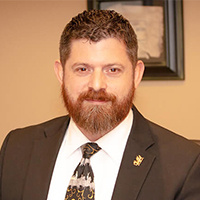Lacey Criminal Lawyer, Washington
Sponsored Law Firm
-
 x
x

Click For More Info:
-
The Law Offices of Jason S. Newcombe
3025 Limited Ln NW #206 Olympia, WA 98502» view mapCriminal Defense, DWI/DUI, Misdemeanor CONTACT US FOR A CONSULTATION
Our Washington State lawyers have the resources, the knowledge, and the experience to assist you with your legal matter in our practice areas.
800-699-2370
M. Preston White
✓ VERIFIEDPreston White is an attorney representing clients in criminal and family law cases in Olympia, Washington, and the surrounding counties. While serving... (more)
Jason Newcombe
✓ VERIFIEDFrom our offices in Seattle and throughout the state of Washington, we help families solve difficult legal problems and move on with their lives. ... (more)
Howard Comfort
✓ VERIFIEDHoward Comfort is a practicing lawyer in the state of Washington.
Cristine Beckwith
✓ VERIFIEDCristine Beckwith is the owner of Beckwith Law. She is exceptionally qualified to provide strong representation to clients facing a wide range of crim... (more)
Dennis Edward Schroader
✓ VERIFIEDDennis Schroader is a skilled attorney who grew up in Tacoma and returned to the area after his military service and law school. In the Air Force, Den... (more)
Jason Newcombe
✓ VERIFIEDFrom our offices in Seattle and throughout the state of Washington, we help families solve difficult legal problems and move on with their lives. ... (more)
Leslie E Tolzin
FREE CONSULTATION
CONTACTDan E Liebman
FREE CONSULTATION
CONTACT
 Jason Newcombe Seattle, WA
Jason Newcombe Seattle, WA






